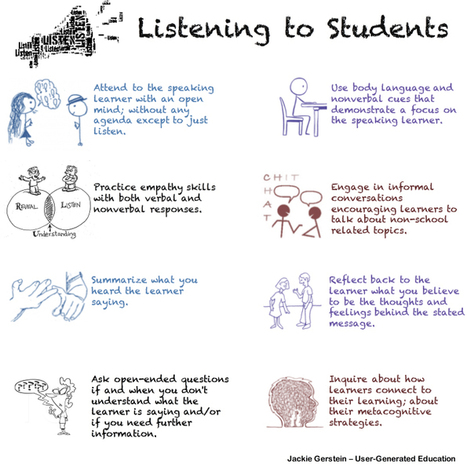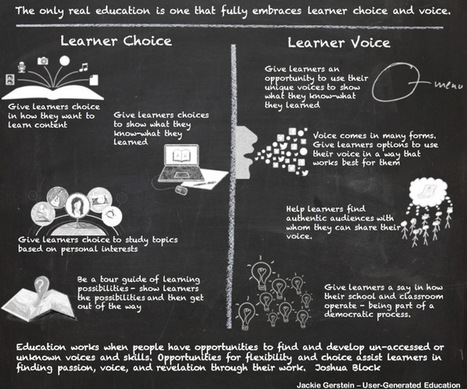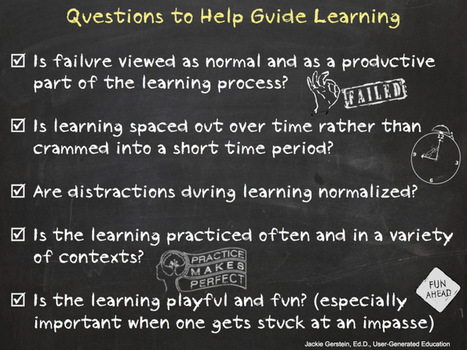This piece was actually sparked by an interview of Lady Gaga by Soledad O' Brien at the Born This Way Emotion Revolution Summit where Gaga stated, "It's time to stop telling learners what to do and
start listening for we can do for them.”
One of those accepted practices, sadly, in most educational settings is that the teacher is the authority to be respected and listened to without question. Listening to students is not a practice that is often taught in teacher education programs.
There is a current movement, in some circles, to promote and honor student voice. But, and this is a huge but, if educators are serious about honoring student voice, they need to first learn how to listen, really listen to their students.
Students who are given a voice in setting goals gain ownership in what they’re learning. Teachers who listen to what students tell them they need to learn gain more than just a better understanding of the children they teach — they gain clarity on their roadmap to better teaching. And when conversations about teaching and learning are allowed to happen, teachers and students develop mutual trust and high expectations. (Want to Improve Teaching? Listen to Students)
Learn more:
https://gustmees.wordpress.com/2014/10/03/design-the-learning-of-your-learners-students-ideas/
https://gustmees.wordpress.com/2014/05/29/practice-put-students-in-the-drivers-seat-how-to/
https://gustmees.wordpress.com/2014/01/04/practice-better-ways-to-say-i-dont-know-in-the-classroom/
http://www.scoop.it/t/21st-century-learning-and-teaching/?tag=students+voice



 Your new post is loading...
Your new post is loading...

















Para docentes
As I visit classrooms, I see teachers working hard at lecturing and students passively receiving. A few students may be actively taking notes of some kind but most are just listening, maybe. In John Hattie's , Visible Learning (pp.43-44), one of the most effective predictors of student performance is the student's own reporting of his/her level of knowledge of the content.